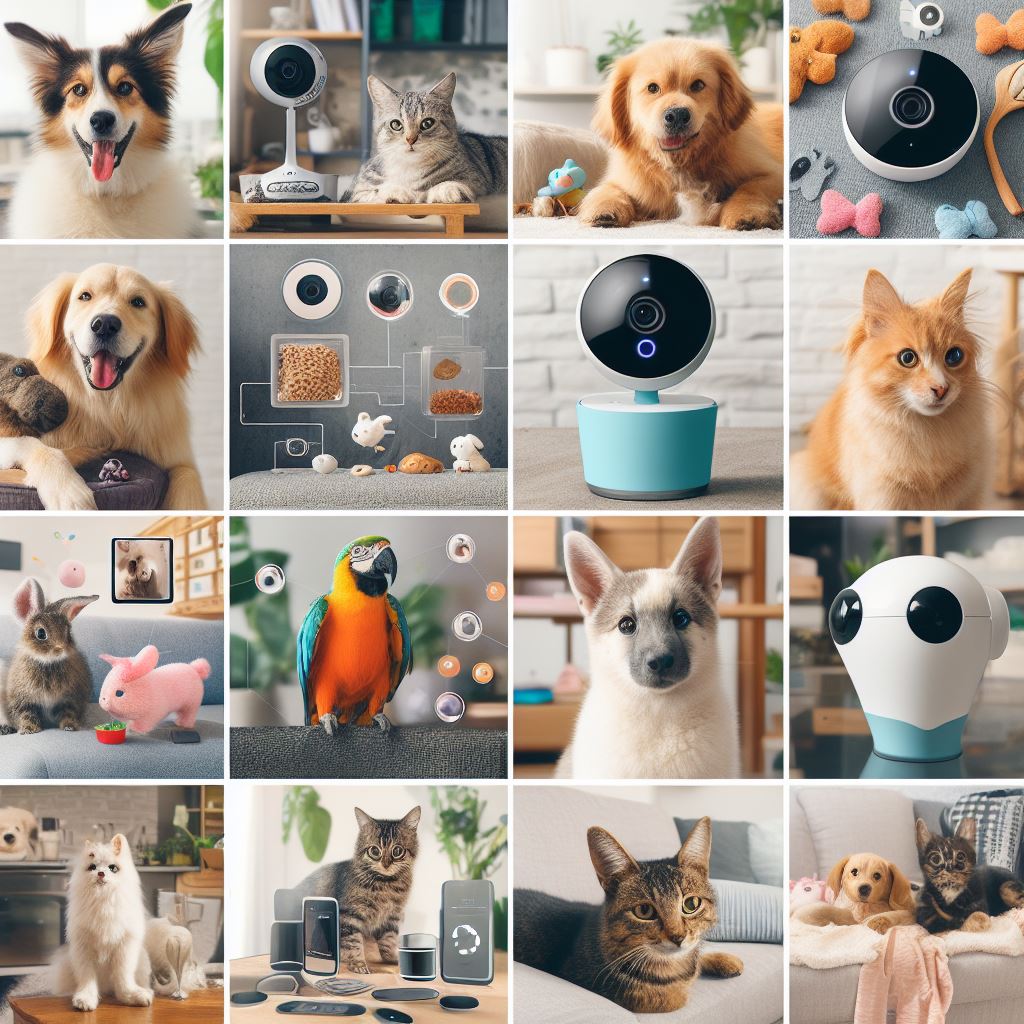AI for Pets is a rapidly developing field that aims to utilize artificial intelligence to enrich pets’ lives and enhance pet care and ownership. As technology continues to evolve at breakneck speed, its applications have extended far beyond what we could ever imagine. From smart homes to self-driving cars, artificial intelligence (AI) has transformed various aspects of our daily lives. And now, it’s revolutionizing the way we care for our beloved furry friends. This article will explore how AI is transforming pet ownership by providing personalized nutrition plans, enhancing training techniques, improving health monitoring, and facilitating more efficient adoption processes.
Table of Contents

AI For Pets – Personalized Nutrition Plans
Pet owners often struggle with determining their animal’s dietary requirements. Each breed has specific nutritional needs that must be met, but finding a perfect fit can be challenging. That’s where AI comes into play – it helps create tailor-made feeding schedules based on individual preferences, age, weight, activity levels, and other factors. A great example of such an application is Purina’s Feeding Advisor tool which allows users to input information about their pet’s lifestyle and generates customized meal recommendations accordingly.
AI For Pets- Enhanced Training Techniques
Training your pet requires patience, time, and consistency. However, not all animals respond equally to traditional methods. Some may need extra encouragement or motivation, while others might require different approaches altogether. With AI, trainers can develop more effective and personalized learning experiences for dogs and cats alike. For instance, Barkly Pups uses AI algorithms to analyse videos of puppies playing with toys, identifying their preferences, and recommending suitable alternatives. By understanding each pup’s unique tendencies, trainers are better equipped to design bespoke training sessions catered towards specific learning styles.
AI For Pets- Improved Health Monitoring
Pets cannot verbally communicate any symptoms they might be experiencing, making early detection of illnesses difficult for vets. Traditionally, diagnoses were made through routine checkups, blood tests, and physical examinations; however, these methods can prove invasive and stressful for some pets. Fortunately, advances in AI have led to non-invasive diagnostic solutions that monitor vital signs continuously, alerting owners if anything abnormal is detected. For example, KITTEN is a wearable device developed by Vetter Technology that utilizes sensors and machine learning algorithms to track heart rate, breathing patterns, body temperature, and sleep cycles. Such devices enable timely intervention before issues escalate, ultimately leading to happier and healthier pets.
Facilitated More Efficient Adoption Processes
Finding the right match between pets and families can sometimes be tricky due to personality differences, living conditions, and lifestyle choices. Yet, AI can help streamline adoption procedures, matching potential adopters with compatible companions based on shared interests, behavior traits, and compatibility scores. One such platform is PetFinder, a website dedicated to connecting shelter animals with loving homes. Its AI-based recommendation engine takes into account multiple criteria like location, type of pet, budget, and family size, generating a list of suitable matches from which prospective parents can select.
The integration of AI into pet care opens up new possibilities for enhancing every stage of pet ownership. From improved diets and specialized training programs to advanced medical treatments and smoother adoption paths, AI is changing the game for pet lovers worldwide. As technology continues advancing, we can expect further innovations that benefit both pets and humans alike. Let us embrace these developments wholeheartedly, ensuring that our four-legged friends continue enjoying happy and healthy lives.
Behavior analysis allows AI systems to study an animal’s behavior and offer insights into their emotions and moods, which can help veterinarians provide more personalized care. Drug discovery uses AI to analyze large datasets and identify potential treatments, leading to the development of new drugs that are more effective and have fewer side effects. Personalized nutrition enables AI to create tailored dietary plans for pets based on factors like breed, age, and specific nutritional requirements.
Lastly, AI improves diagnosis and treatment processes by assisting veterinarians in making accurate diagnoses and recommending appropriate courses of action. Overall, AI has the potential to greatly enhance the health and happiness of our beloved pets.
Discover more from TechResider Submit AI Tool
Subscribe to get the latest posts sent to your email.
